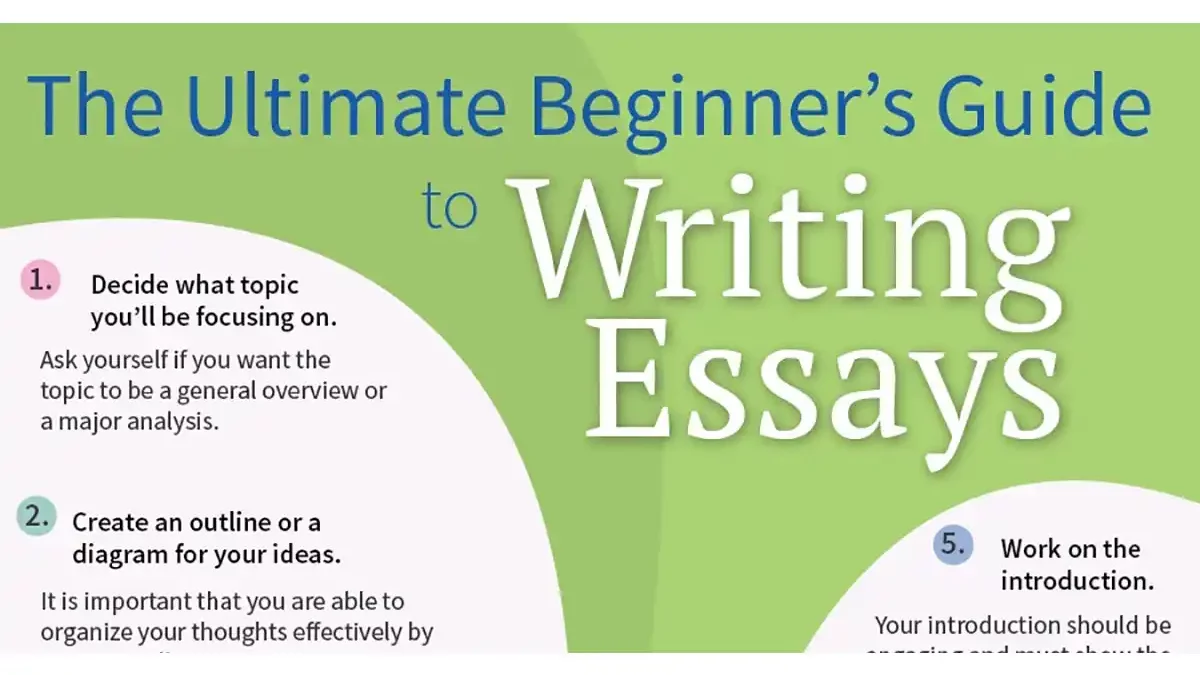Essay Writing For Beginners it can seem daunting, it can be a great way to showcase your writing abilities and knowledge. This guide will show you how to create an informative and interesting essay. We’ll also offer tips on choosing the best expository essay topics. So, let’s get to it!
Table of Contents
The Basics Of Essay Writing.
Everyone should learn how to write essays. Although it can initially seem complicated, anyone can learn how to write great essays with just a little practice. An essay must contain three elements: the introduction and the body.
The conclusion is the final piece. The introduction should grab attention and give the reader a sense of the essay’s purpose. The body of your essay will be where you present your argument and provide supporting evidence.
Finally, the conclusion should summarize your main points and give the reader something to consider. If you follow these steps, you will be able to write an essay on any subject.
How To Find The Perfect Expository Essay Topics.
It would help if you kept some things in mind when searching for expository essay topics. First, you’ll need to ensure that your topic is sufficiently specific to be covered in one essay. Expository essays usually focus on one main idea, so choose a topic that’s narrow enough.
You should also ensure that your topic interests you and has some knowledge. Once you have identified a topic you are interested in, you can begin brainstorming ideas and creating a thesis statement.
For inspiration, you can look at expository essay examples if you need help getting started. You should be able to find the perfect topic in no time with a little effort.
How To Write An Introduction And A Conclusion: Tips.
These are some tips for writing introductions and concluding sentences: Keep it brief and to the point. Refrain from boring your reader with a lengthy introduction. Instead, ensure you get to the point quickly and that your thesis statement is concise and clear.
Use strong verbs. Use strong verbs in introductions and conclusions. make use of words such as “argue,” claim, ” or “demonstrate” to add weight to your paper.
Your introduction and conclusion should flow together coherently. It will be easier for readers to follow your paper if it drifts from the topic. So please keep to the main points and ensure that your conclusion supports them. These tips will help you provide solid introductions and concluding sentences.
Tips For Editing And Proofreading Your Work.
It is essential to proofread and edit your writing to ensure clarity and consistency and avoid errors. Unfortunately, it can be easy to overlook the mistakes in your writing. These are some tips that will help you proofread and edit your essay.
Read your work aloud. This will allow you to spot errors you might have missed.
Take a break between drafts. After you finish writing, take a break and return to work later with fresh eyes. This will allow you to spot mistakes you missed before.
Ask another person to review your work. Sometimes, another set of eyes will catch mistakes you may have missed. Spell checks and grammar checks are proper. These tools are helpful but could be better. These tools should be relied upon only partially. However, they can help you catch mistakes. These tips will ensure that your writing is strong.
Final Thoughts.
This guide contains only some of the information needed to write essays. However, it will provide a solid foundation for beginners. Writing an essay takes work. It’s essential to get started early and then revise frequently.
Your essays will improve the more you work on them. We hope you found this guide helpful. As you become a better writer, we encourage you to continue using our resources. We appreciate your time!

